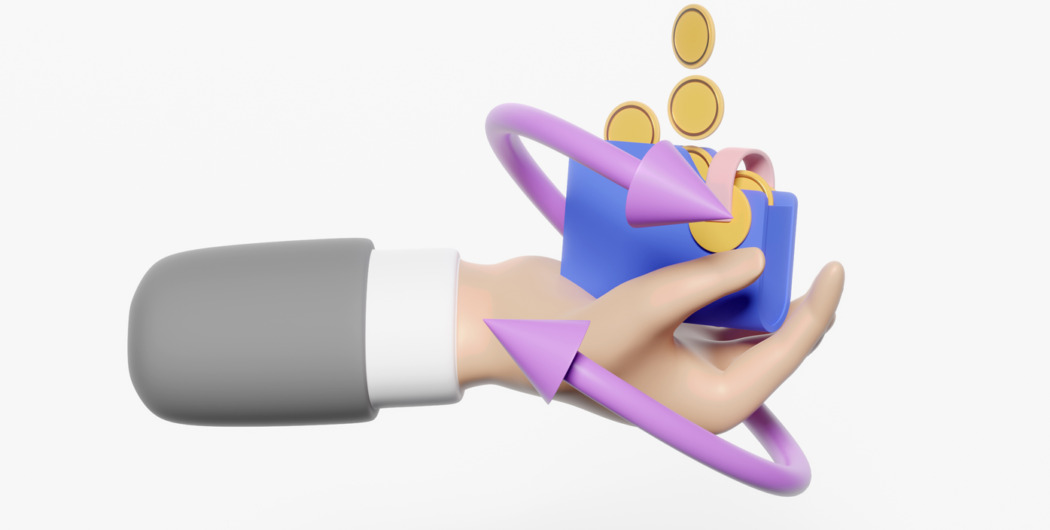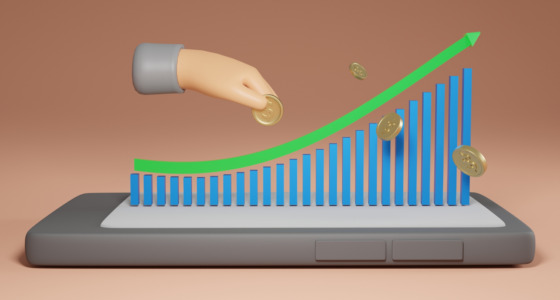

Have you noticed that the terms “money” and “finance” are usually used in different contexts? The concept of money is mostly used in everyday life — earning, spending, borrowing, and saving money. You’ve probably used these expressions numerous times. Interestingly, the peak popularity of the term “money” was in April 2020 — 100/100 on Google Trends. One could argue the interest hasn’t gone down since then, at least in people’s minds.
The term “finance,” on the other hand, is used to describe broader, more advanced concepts — such as personal, corporate, and public finance. How so? And are these terms really that different?
Definitions: what each term means
Money is a legally or socially binding commodity; it measures the value of goods and services, but it is void of intrinsic value. If you open textbooks on macroeconomics, you will find intertwined but distinct functions:
- Medium of exchange: Facilitates the sale, purchase, or trade of goods and services
- Unit of account: A common measure of the value of goods and services being exchanged
- Store of value: Retains purchasing power into the future
Finance is a broader term that describes activities associated with money, banking, leverage or debt, credit, capital markets, and investments. So, money is a part of finance, but finance encompasses many other things as well.
The main focus of finance involves money management, which can be proactive with periodic or regular planning and reactive to specific events. As already briefly mentioned in the intro, finance has three main subcategories:
- Personal finance: Strategies for future needs of individuals
- Corporate finance: Funding sources, capital structuring, and investment decisions
- Public (government) finance: A country’s revenue and expenditures
Key differences: purpose and motion
- Finance has a purpose, money does not
In some people’s minds, finance has been quantified for efficiency, and this statement equates finance almost exclusively with money, neglecting the connecting link — people.
Fundamentally, the purpose of finance is to help people save, manage, and raise money. It helps individuals and businesses to operate effectively and efficiently and have the end towards which they direct their actions.
- Finance is a continuous process, while money is a physical good
Money is earned and spent, whereas finance is target money in motion. Here are some examples of the activities finance includes (in the context of personal finance):
- Saving personal money
- Investing personal money in stocks, bonds, funds, etc.
- Borrowing money
- Lending money
- Building a budget and financial model for a household or a corporation
- Forecasting and planning

Changing your attitude toward money and treating it like finance
If you understand the difference between money and finance, you can see the benefit of changing your attitude towards personal money. Consider switching to the mindset of personal finance. This means not only earning and spending money but also using money as a tool for managing savings, investments, and asset protection, too.
When your goal is no longer just to “have money,” you start acting like a financial strategist. You adopt a mindset of competent accounting and planning. You may notice the shift in yourself, where your actions are geared towards making intelligent decisions and building a safety net.
Think about what could lead you to the future that sustains you without constraints or bad debts. A good way to start is to build a financial safety cushion. Reduce your expenses by $100-$200 a month or more if you can afford it, and put it straight into a stash (savings account) that you can access easily for unexpected expenses. The recommended amount to have is 6 monthly salaries.
Once you have your emergency fund, consider investments in various assets that can generate income. This is just a quick example of how you can manage your finance strategies.
How to improve your financial management
Let’s finish off this article with tips for managing corporate finances that actually work perfectly well for personal finances. These are basic rules for handling money as a business and as an individual:
- Have a plan — outline your objectives, time constraints, budget, and sources of income.
- Know your day-to-day expenses and plan out large future expenses (cars, houses, holidays).
- Get the right funding, which, in the context of personal finances, means building a reliable income stream, ideally multiple ones.
- Tackle problems as soon as they arise. Pay off pressing debts and don’t delay making payments for necessary improvements.
- Examine your overhead and mark off personal items that are too expensive, inefficient, or unnecessary.
- Regularly monitor the progress and keep your records updated.
- Go paperless — scan and manage receipts electronically.
Overall, well-planned financial management saves you time, spares you stress, and increases your disposable income.








